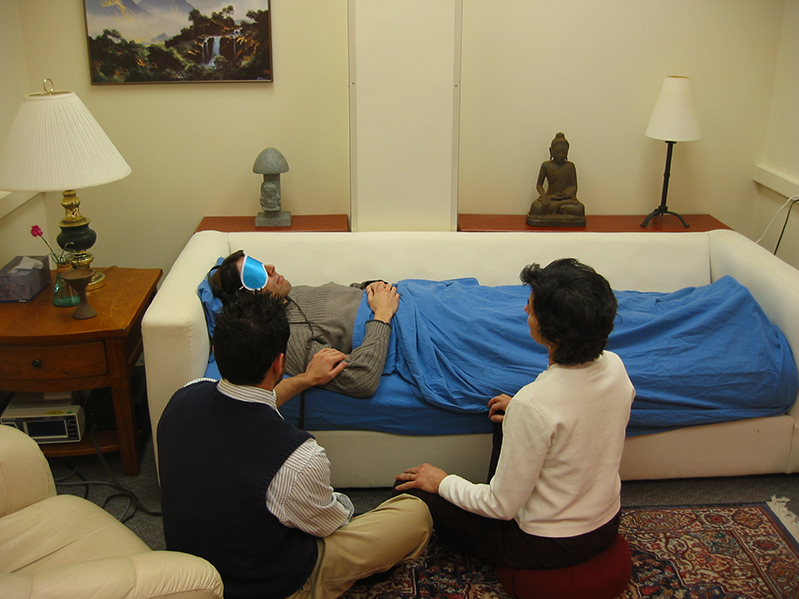
Study findings published Thursday by Johns Hopkins and New York University School of Medicine researchers indicate psychotherapy fueled by a hallucinogenic called psilocybin, the active ingredient in the mind-altering drug known as magic mushrooms, could reduce psychological illness and distress among patients with life-threatening diagnoses. Cancer patient and study participant Tony Head said he wasn't sure he'd call it "God," but some extraordinary power touched him during his psychedelic-assisted therapy session.
Head, an actor who played Major Bobby Reed in the HBO series "The Wire," was one of 80 cancer patients who volunteered to participate in two studies for this research, reports Religion News Service.
"It was so profound that it just took my breath away," said Head. "Whatever it was, it was a power that is in the universe. I feel like it changed my life."
In a press release, Johns Hopkins University said psilocybin had been given "in tightly controlled conditions in the presence of two clinically trained monitors" and that use of the compound was not recommended "outside of such a research or patient care setting."
Both studies were published in the Journal of Psychopharmacology.
In the United States, psilocybin is classified along with heroin, marijuana and LSD as a Schedule I controlled substance, which translates into federal government officials indicating it has "no currently accepted medical use in treatment."
These recent trials, however, suggest spiritual feelings triggered by the drug may play a role in alleviating depression and severe anxiety when dealing with a life-threatening illness. "Many of the patients would say something like, 'Now I've experienced the death of the body, so I'm not so afraid.' They get through it. They come out the other side," NYU researcher Stephen Ross said.
The study of 51 depressed cancer patients at John Hopkins reported reduced depression in 92 percent of those who received a high dose of psychedelic psilocybin, compared with only 32 percent among those who got an extremely low dose that should not have had much of an effect. Tests to measure depression were done five weeks after the psilocybin session.
NYU researchers found that 83 percent of volunteers treated with psilocybin had a significant reduction in depression symptoms seven weeks after they received a single dose of the psychedelic compound. That compared with only 14 percent of a control group that got all the therapy - but with a placebo pill containing niacin. There were a total of 29 research subjects in that group.
Both research teams found that most of the improvement in mood remained six months after the psychedelic sessions. Those who randomly received the placebo pills in the double-blind trials were later able to undergo a high-dose psilocybin session, and they also showed significant long-term psychological gains.
Ross, director of addiction psychiatry at NYU Langone Medical Center, said half of the New York volunteers going into the study described themselves as agnostics or atheists, and half had some kind of religious affiliation. But roughly equal numbers in both groups had experiences that could be described as "mystical."
"People describe being in touch with awe-inspiring elements, with something sacred. They describe a sense of infinite love, a sense of peace, humility, being transported back into their lives," he said. "They described a sense of internal and external oneness."
Roland Griffiths, the lead researcher on the Johns Hopkins team, said perhaps the most extraordinary finding is that a single dose of a drug can have such long-term positive effects on the volunteers' mood. "It's more proper to say that it's the psilocybin-occasioned experience that gave them these enduring effects," he said. "The drug effect itself is gone after one day."
Griffiths, a professor in the department of psychiatry and neurosciences at Johns Hopkins, said he is aware that some people of faith might question whether a drug-induced mystical state is an "authentic religious experience."
"Are mystical experiences occasioned by prayer more authentic than compared to spontaneous mystical experiences without drugs?" he asked. "What about if someone is just meditating, but not praying to God? Is preparation by fasting 'authentic'? What about a mystical experience that happens by walking in the woods?"
Together, the two clinical trials cost approximately $2 million. Both were funded by the Heffter Research Institute in Santa Fe, N.M., a private, nonprofit organization that has awarded $6.7 million since 1993 to support research into the beneficial uses of psychedelic drugs.






